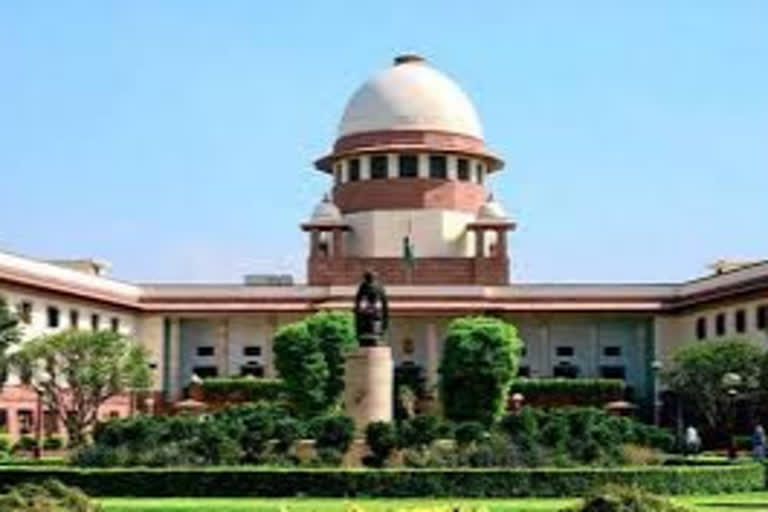New Delhi: Mere inclusion of candidates in a selection list is not a vested right to appointment, the Supreme Court said on Wednesday, setting aside the Delhi High Court order which directed Delhi Police to appoint two persons as constables even though they failed to make it to the final merit list.
The apex court was very critical of the Delhi Police appointment process for recruiting 523 constables, wherein the notice was published in 2013 but hiring happened in 2016 -- that too, after various rounds of cancellations and revision of merit list following litigations.
Such irregularities have become a bane of the public recruitment process at various levels resulting in litigation across the country before the Tribunals, the High Courts and ultimately this Court as well. Much of the litigation and delay in carrying out public recruitment would be obviated if those entrusted with the duty to do so carry it out with a sense of diligence and responsibility, said a bench of Justices D Y Chandrachud and Indira Banerjee.
The court, in its judgement, referred to the sequence of events in the recruitment process which led to the delay.
After the physical endurance and measurement test in October 2013, over 39,000 candidates appeared in the written examination on March 8, 2014 which got cancelled.
A fresh written examination was conducted on May 25, 2014 and it was cancelled as well. Finally, the test took place in November 2014 and after evaluation of OMR sheets, 514 candidates were provisionally selected on July 13, 2015.
The appointment process again got stuck and the merit list was redrawn as it was pointed out that an extra bonus mark could not be allotted inadvertently to those candidates whose height was measured at 178 centimeters or above at the time of the physical endurance and measurement test.
Also Read: SC rules out indefinite occupancy of public places, unacceptable in Shaheen Bagh case
In the redrawn merit list, declared on July 17, 2015, 32 new candidates came within the selection zone and 34 candidates were ousted.
Some students then moved the Central Administrative Tribunal alleging that answer keys to certain questions were wrong.
An expert committee was set up and then the final result was declared again on February 22, 2016 in which 129 new candidates came into the selection zone and 123 candidates who had been declared selected earlier in the result were ousted.
Umesh Kumar and Satyendra Singh, who were selected earlier under the OBC category and later dropped from the merit list, got the relief from the Delhi High Court which asked the city police to appoint them as constables.
Referring to its earlier judgement, the apex court said, The real issue, however, is whether the respondents were entitled to a writ of mandamus. This would depend on whether they have a vested right of appointment. Clearly, the answer to this must be in the negative." this court held that the mere inclusion of candidate in a selection list does not confer upon them a vested right to appointment.
It further said: We are of the view that the judgements delivered by the Delhi High Court on 6 December 2018 do not comport with the law. The High Court has been manifestly in error in issuing a mandamus to the appellants to appoint the respondents on the post of Constable (Executive) in Delhi Police.
"The direction was clearly contrary to law. The respondents have participated in the selection process and upon the declaration of the revised result, it has emerged before the Court that they have failed to obtain marks above the cut-off for the OBC category to which they belong.
The court was also not impressed with the argument that Umesh Kumar, who finally did not make to the list of successful candidates, had resigned from the RPF after being selected in Delhi Police.
Evidently, the respondent tendered his resignation without any justification when the recruitment process had not been concluded and even before an offer of appointment was made to him. In any event, it would have been open to him seek re-enlistment in the RPF at the material time which he chose to not do, the top court said.
PTI



